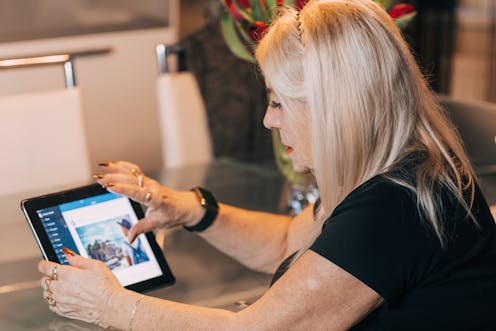Less than half of Australian adults know how to identify misinformation online
- Written by Tanya Notley, Senior Lecturer in Digital Media, Western Sydney University

For most of us, it’s hard to imagine a media-free day.
Understanding what’s happening in the world, maintaining our social media profiles, staying in touch with family, being entertained, making new friends, engaging with governments, and with our democracy, are all activities that usually require media participation.
To do these activities regularly and effectively, we need to have at least a moderate level of media literacy.
Media literacy is about more than having a set of technical skills and knowledge about media. It is also about the ability to critically engage with media: to discern fact from fiction, decide which digital technologies and platforms to use and which to avoid, and to critique the power and influence media and technology companies have.
We carried out a national survey of 3,510 Australian adults to investigate their media literacy. We believe this is the first nationally representative survey to investigate the media literacy needs, attitudes and experiences of adult Australians.
We found most Australian adults have a low level of confidence in their media abilities including in areas such as checking if information online is true and checking if a website can be trusted.
This is a problem because people who are less adept at critically engaging with media are more vulnerable to influence from manipulative actors. Lower levels of media ability will result in fewer opportunities to participate in society socially and economically.
Lack of confidence for basic media tasks
Overall, we found Australian adult media literacy is low. Most adults had either no or a low level of confidence in ten out of 12 media abilities we listed.
While most people felt confident in their ability to perform a basic online search, far fewer were confident they could verify if information is true or not. And even fewer were confident they could create or edit media such as videos and photos.
Our survey also showed many people lacked the ability to safely navigate online environments: less than half (45%) of Australian adults had a high level of confidence in their ability to change the privacy settings on social media. And only 39% said they were confident they knew how to identify misinformation.
Even fewer adults (35%) were confident they knew what to do when they were harassed online and only a quarter (26%) were confident they could make sense of the terms and conditions of social media platforms.
Older Australians, people who have a lower level of education and people living in a low income household were far more likely to have a lower media ability. This is also true for people living with a disability or in a regional area.
Limited sources of support
We also found 30% of adults had received no help from any of the eight sources of support we listed which would help them analyse, use or create media. This included help from schools, friends, family and libraries.
Read more: 3 ways to help children think critically about the news
Among those who have access to support, the most common source they turned to was online resources (45%) followed by friends (42%) and family (41%).
Those with a low level of education were the least likely to have had any support to help them with media participation.
Strong support for media literacy education in schools
Four out of five Australians (81%) said children should receive media literacy education in school.
This significant level of support indicates people believe formal education should play a more central role in the development of media literacy.
But we found schools are not currently fulfilling this need. Only 14% of adults said they had received media literacy support in primary school, 22% received support in secondary schools and 25% received support via tertiary education.
Even for younger adults aged 18-24, schools were far from being a consistent source of media literacy support. Slightly more than half of this group (57%) reported having received media literacy support in high school, while 32% received support in primary school.
Thriving in a digital world
Misinformation has become one of the great challenges of our time. We have witnessed misinformation influence elections, threaten public health and safety and hamper democratic processes.
Most Australians (67%) said knowing how to recognise and prevent the flow of misinformation was extremely important or very important to them.
Yet our findings suggest some Australians are more likely to be vulnerable to the harms associated with misinformation.
Read more: Fake news was a thing long before Donald Trump — just ask the ancient Greeks
While most Australians said it was important to think critically about the media they consumed, those with lower educational attainment and lower household income were less likely to believe this was important.
Those who have had access to more sources of media literacy support over their lifetime tended to place greater importance on critical thinking skills when using media (78% for those with two or more sources of support) compared with those who didn’t receive any support (55%).
A lack of media literacy will contribute to increasing levels of social, cultural and economic exclusion for individuals, families and groups. In addition, a lack of media literacy may exacerbate the potential for broader social divisions and threats to our democracy due to the influence of misinformation.
Despite this, there is no federal funding or a national policy to advance media literacy in Australia. Given what is at stake, the responsibility for being media literate should no longer be simply left for people to work out for themselves.
Authors: Tanya Notley, Senior Lecturer in Digital Media, Western Sydney University





